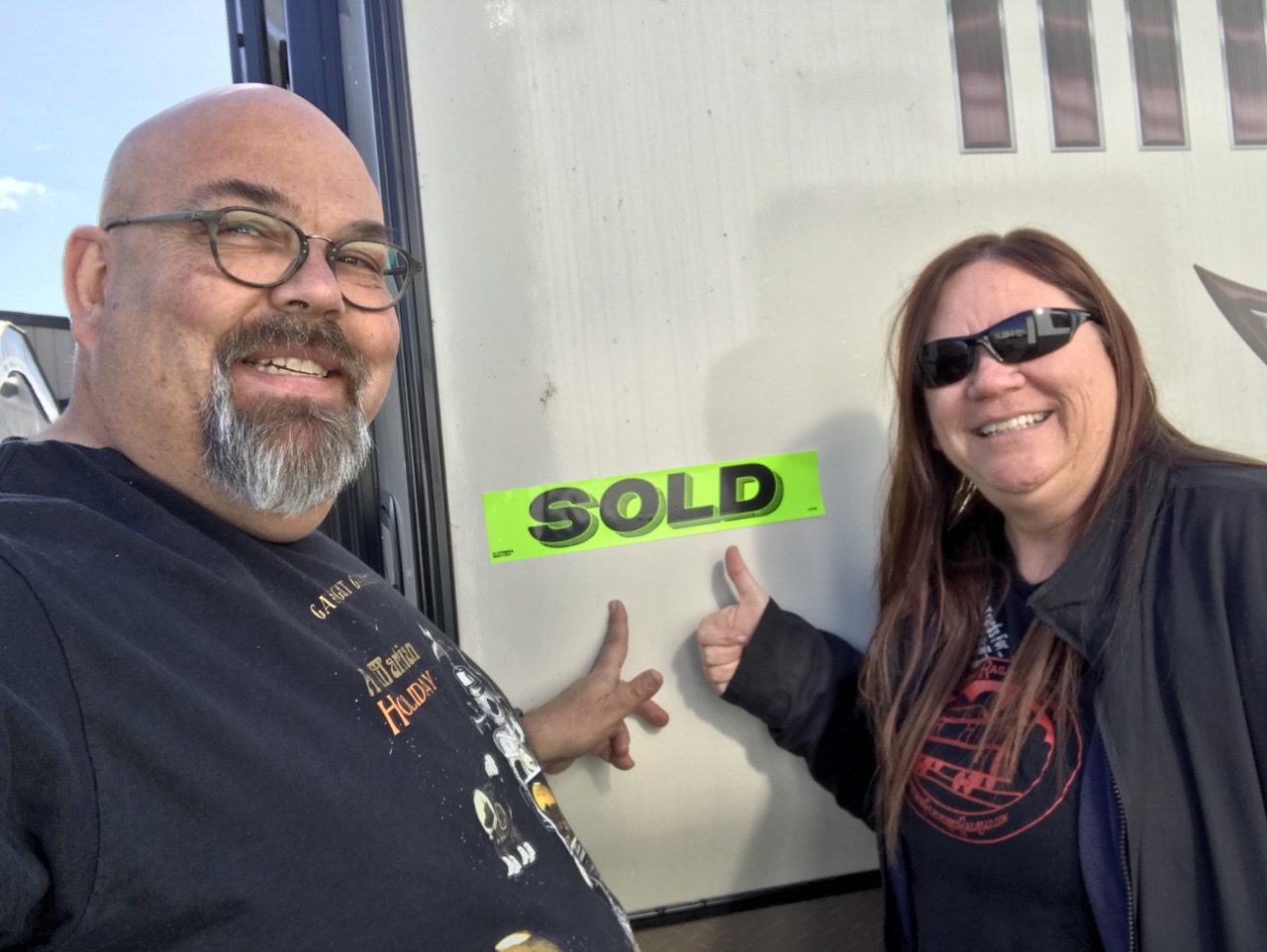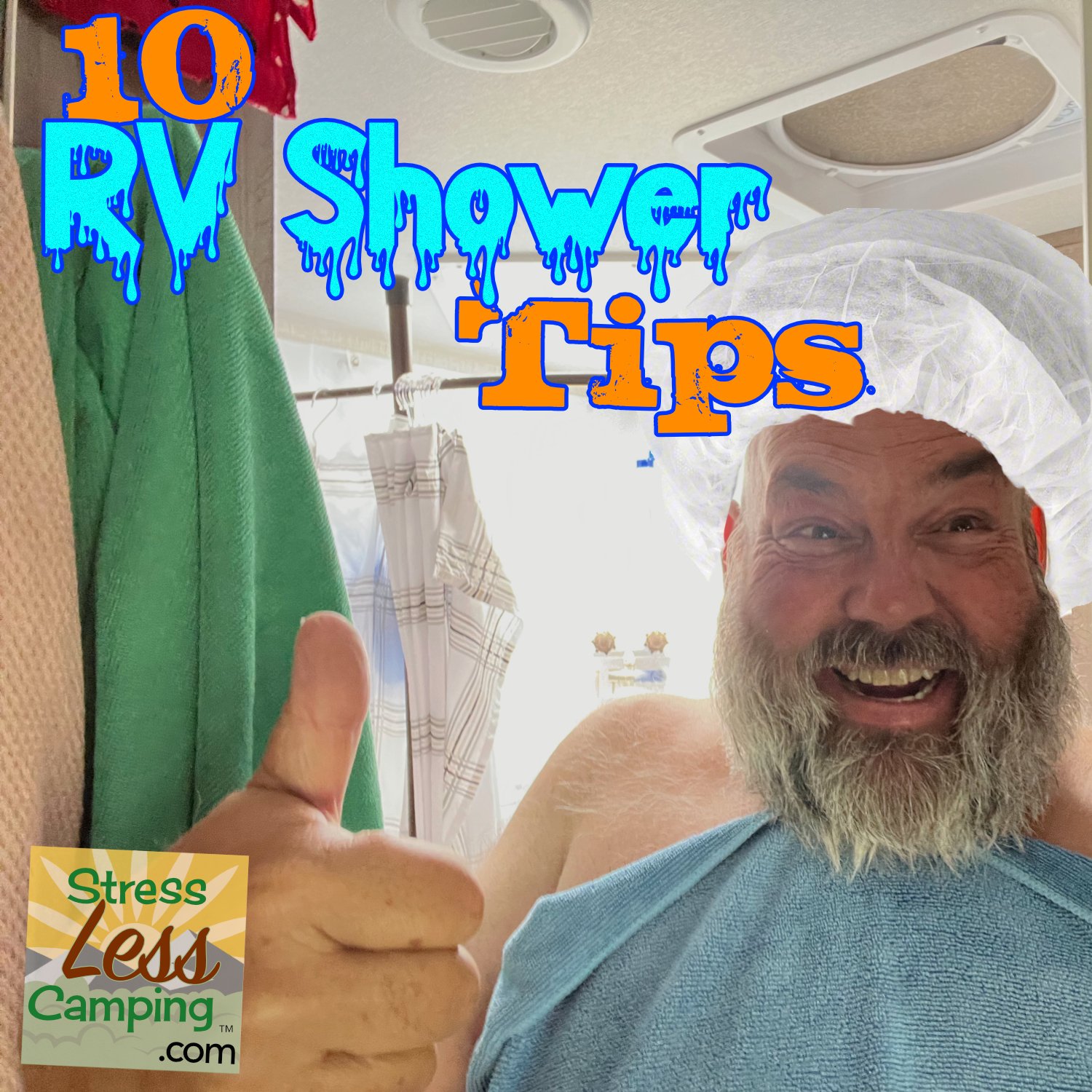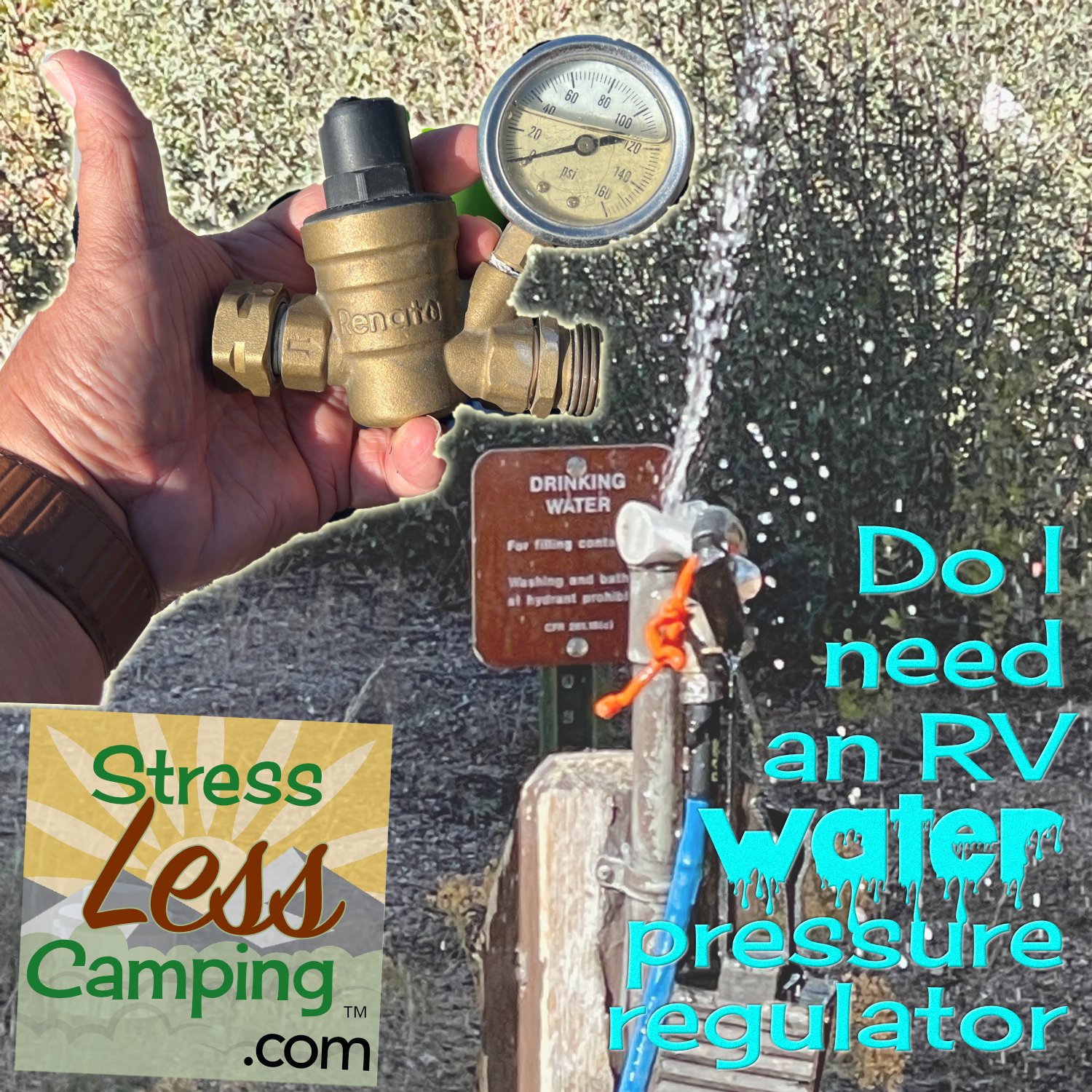Is your RV a ticking time bomb and what can you do about it?
Your RV’s plumbing may be a ticking time bomb and we have a few solutions to solve this. No surprise, our year-old RV recently had a water leak that is very common among RVs and while we fixed it, we anticipate this happening again in other fixtures.
Why do RV plumbing systems leak?
Any plumbing system anywhere can leak. That’s what keeps plumbers in business. Your house may have experienced a leak just due to time, wear or happenstance. In an RV you add all these factors plus the fact that you’re taking it down the road as a rolling earthquake and then depressurizing and re-pressurizing the plumbing system over and over.
Further, some campgrounds’ water systems have extraordinary pressure. While an RV plumbing system might be rated for up to 80 pounds per square inch of water pressure, some campgrounds are even higher than this. Further, that pressure can decrease and increase based on other campers in the park along with other variables.
But the biggest factor in RV plumbing leaks can be how RVs tend to be plumbed. It’s very common that RV manufacturers will use a pinch clamp on flexible tubing. What this means is that they use a metal clamp around flexible water tubing to attach that to plastic fittings.
This is something that residential plumbing code prohibits in the way the RV companies do it but is very common within the industry. This video goes into great detail about this practice, which I think is a complete disservice to RV owners.
We recently had one of these clamps fail. Our friend Jason Epperson, from RV Miles, said he’s had this failure in all three of his RVs, all of which were bought new. I basically spent the day repairing the issue by installing a stainless steel hose clamp that replace the pinch clamps the RV manufacturer installed.
Thus far I’ve only done one of these but plan to replace all the fittings when I have some time off the road in a few months.
In fact, this video details how one owner did just this. And this isn’t brand-specific - most RV companies do this. This is by no means a singling out of any one RV brand but, rather, a common practice in the whole industry.
What can you do?
I had mentioned that I was planning to replace all these fittings in the future. Until then I bought some water sensors that alert me if they detect water. These simple devices can be placed in areas where you might not normally look but where there are plumbing fittings that can leak.
If a leak is detected, they will sound the alarm. The ones we bought were very inexpensive and simply make a very loud noise. There are others that are connected to your smart phone or just simple, inexpensive models that will produce a very loud sound if they detect water.
The ones we got on Amazon are very inexpensive but are better than detecting a leak by seeing water on the floor of your RV, which is how we found the two leaks we’ve already had.
The way these work is by sounding a very loud (supposedly 120 decibels which would certainly get your attention!). They’re operated by a nine volt battery.
You can place the sensor itself up to 38 inches from the actual alarm and battery housing so we’ve placed them in the cabinets and placed the actual sensor down low where the potential water leak would be.
In our own RV we’ve placed one in the cabinet with the water heater, one under the sink where the water pump is and one under the kitchen sink. The one under the bathroom sink can also detect a potential leak in the shower, I hope.
The last one went under the kitchen sink.
Of course the disadvantage of these particular sensors is that you only get notified of a leak if you’re within hearing range of the alarm unit. I think this is fine only in that we only leave the water on in our RV, or the pump if we’re off the grid, when we’re actually in the RV.
This also brings us up to the point that we only have the water system engaged when we’re in the RV. When we head out for the day we turn the water off at the spigot if we have hook-ups or turn off the water pump when we don’t.
Water pressure regulator
Another thing I can’t stress enough is that you should absolutely have a water pressure regulator. My preference is the adjustable type and, as always, buy a high-quality unit. We have an article about why you need an RV water pressure regulator.
What else can you do?
These cheap clamps on plastic fittings is so common within the RV industry and it needs to stop. Now. But the only way RV manufacturers will get the message is if we all vote with our dollars.
So I encourage you, if you go RV shopping, to let dealers and manufacturers know that you’re completely dissatisfied with this practice. Going on a wonderful adventure and then discovering plumbing issues is absolutely no StressLess Camping.
Further, every one of my circle of friends whom I shared this information with reported that they, too, had had exactly the same frustration with their RV plumbing in this exact same place with these exact same fixtures.
Make no mistake - stepping up the game in RV plumbing is going to cost all of us some money if the manufacturers use more expensive fittings and processes. How much? Potentially a few hundred to a thousand dollars. Ish.
But there are also RV companies like the Alliance RV that I’ve reviewed at where each plumbing fitting has a remote shut-off. That’s the way it should be done and is a practice worth supporting with our RV shopping dollars.


































